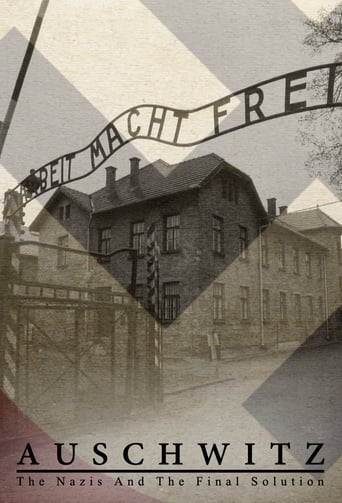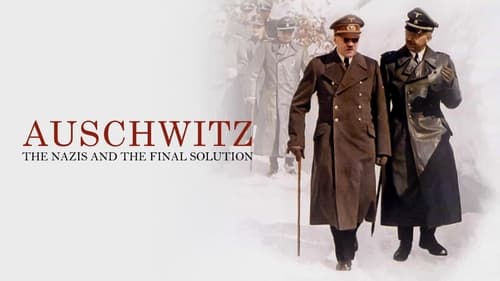Charles Reinderhoff
This series of films is a masterpiece. It's as simple at that. How one has been able to make an in depth and gruesomely precise dramatized film on such a black hole in human history is beyond me. But they have succeeded. The film is very precise, very direct, and, very honest. It tells the story of human beings at their worst. Sometimes one may want to stop the film, knowing what is going to come next, but something forces you to go on. It's like a powerful magnet, you can not stop watching. What makes this film worth while, is the way it has been built up for the viewer. It explains in clear precise words and pictures what had to be done in the Nazi state if you belonged to the chain of command in the SS organization. Most people don't realize it today, but many SS higher commanders where academically schooled in private life. Some where lawyers or doctors, others where economists or engineers. These men were intellectuals. The shocking trues is, that the SS was an intellectual elite bent into a warped idea of supremacy with no holds barred. This film makes you look at these cold hard facts. How in peacetime respectable men, became in wartime beasts and cold blooded murders. This film tells us something about...ourselves.
Rindiana
Too much dramatized scenes for my taste, but otherwise this is another well-made BBC documentary about the Holocaust in general and death camp Auschwitz in particular.The series' director's resistance to tug the viewers' heart strings and him resorting to a matter-of-fact approach instead is welcome, just as it is the case with the wealth of informative interviews both with former Nazis and camp survivors.Some more insight and less actors impersonating Nazi officials and this six-parter would've been a truly great program. Still highly recommended.7 out of 10
Weasel100
Scratch the surface of a modern human being and you don't have to go too far to reach the barbarian that lies within us all. We may wish to deny it but this documentary series proves the point. Well to do and well educated Germans followed a madman who held out hope of a bright future for them, but always in the full knowledge that their prosperity would come at the cost of others (in this case, a large percentage of Europe's Jews, gypsies, disabled and above all, innocent children).I believe that there is no way that Germans living in Germany at the time of the Holocaust could have been unaware of what the SS was doing in places like Auschwitz, Belsen and Treblinka, convenient as it might be for them after the event to claim that they had no idea that mass murder was being committed in their name.This is a wonderful documentary series. I have not been to Auschwitz but I did visit Dachau outside Munich a few years ago. Dachau was horrifying enough but was a very minor player in the murders that were committed by the Germans.It was interesting and horrifying too to hear the stories that were told by Auschwitz's survivors but what I found most disturbing was the retelling of events by SS officers and guards who were at Auschwitz at various times. Right up to the time of the making of this documentary, these guys stated that what they did at the camp was right. Many of them maintain to this day that what they did was necessary and right for the survival of the German people. One would have thought that there wouldn't be one of these animals left who would not cringe and beg forgiveness for their part in the atrocities that they were involved in. Quite extraordinary that these guys still don't understand the magnitude of the crimes they committed.A must see documentary.JMV
d-wilhelm
My parents are German. They emigrated to Canada in 1950. My mother has always denied knowledge of the Holocaust. My father died too young for me to know what he thought- but he was a kindly man and I believe he would have acknowledged the crime. As a dual German-Canadian citizen, I am proud that Germany has recognized the atrocity and made it a crime to deny it. Now, I challenge other nations to admit the same crimes. Canada and the United States against their native cultures. The United States about black slavery. South Africa and Germany have pointed the way. History should not be denied. This is the lesson the survivors of Auschwitz would have wanted us to learn. One cannot watch this film without being moved, both by the cruelty and greed of the oppressors and by the kindness and self sacrifice of those who aided the oppressed.




